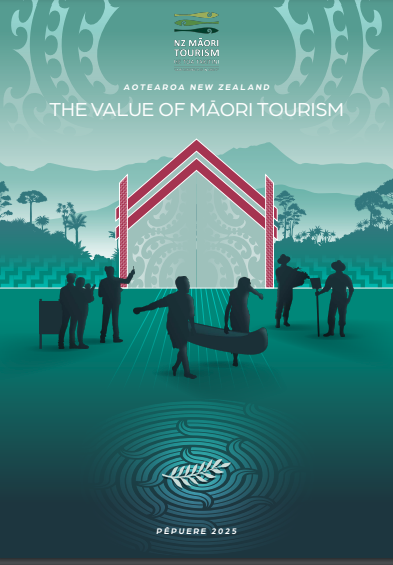Māori tourism now contributes more than $1 billion a year to economic growth, boosting jobs and incomes across the country, the latest Value of Māori Tourism report has revealed.
Released at Te Pā Tū, the tourism business of Tauhara North No. 2 Trust near Rotorua on Friday, the report shows Māori tourism businesses contributed $1.2 billion in 2023 – up from $975 million in 2018.
In 2023, there were 3,595 Māori tourism businesses operating in core and general tourism industries, collectively employing over 15,000 people.
“It creates jobs, fosters entrepreneurship, and provides a platform for Māori experiences, arts, and crafts. This economic empowerment contributes to the cultural revival, preservation, and self-determination of Māori.
“As an example, Minister of Tourism Louise Upston and I recently visited businesses in Te Tai Tokerau and it was fantastic to see how they prioritise their communities and people as part of continuing to develop the local industry,” he said.
“The report, commissioned by NZ Māori Tourism and prepared by Business and Economic Research Limited (BERL), shows Māori tourism is an increasingly formidable part of the engine driving our country’s economic growth,” said Māori Development Minister, Tama Potaka.
Minister Upston said Māori tourism clearly had a very bright future.
“Our visits in Te Tai Tokerau reinforced to me the passion and commitment of providers there and in other regions. I want to be able to do more to support them and the jobs they create for New Zealanders,” she said.
“This Government absolutely understands the significant contribution tourism makes to our country’s economy, and as part of unleashing economic growth in 2025 and beyond, we are committed to supporting it to reach its full potential.
“Māori providers will play a big part in attracting international tourists who want to learn more about our country, our people and our culture.”

Minister Potaka said Māori tourism represented a “total package”.
“The report states that Māori tourism operators put people before profits. Higher salaries paid to employees, and the average salaries of Māori tourism businesses also tend to be higher than in non-Māori tourism businesses,” he said.
“Māori tourism thrives on the relationship between Māori, manuhiri, and the whenua, embodying manaakitanga and kaitiakitanga.
“It sets Aotearoa New Zealand apart from others and is our great point of difference.”
Read the 106-page BERL NZ Māori Tourism.pdf report.



